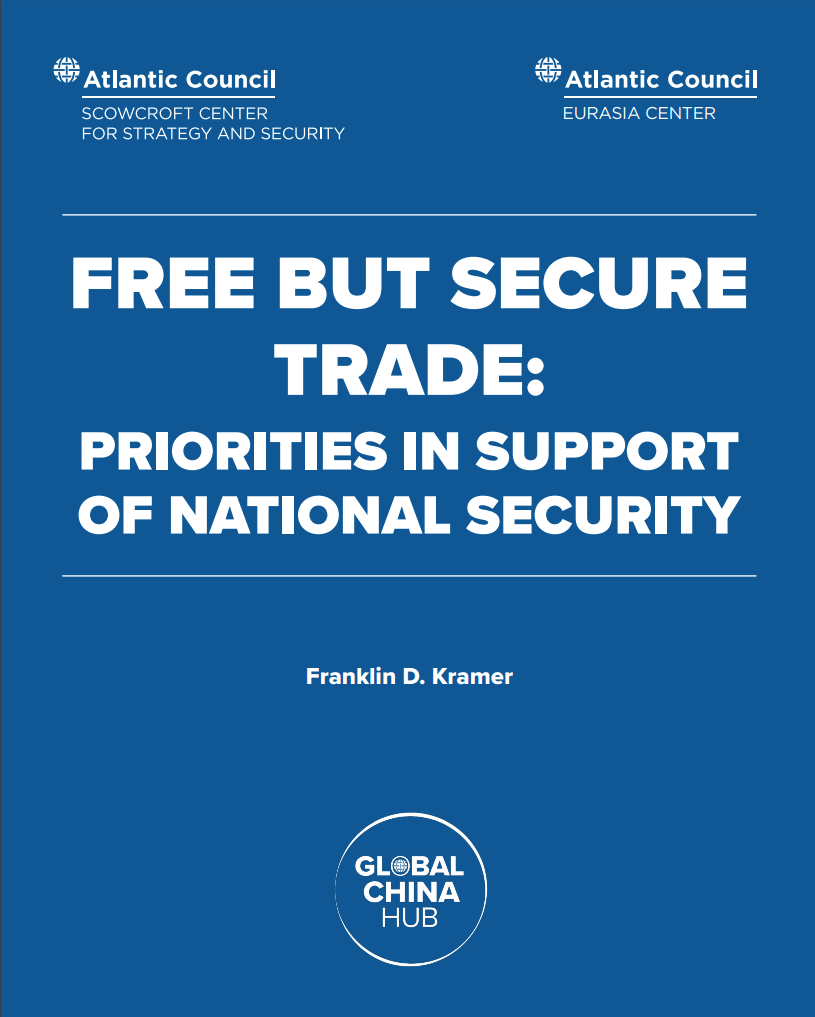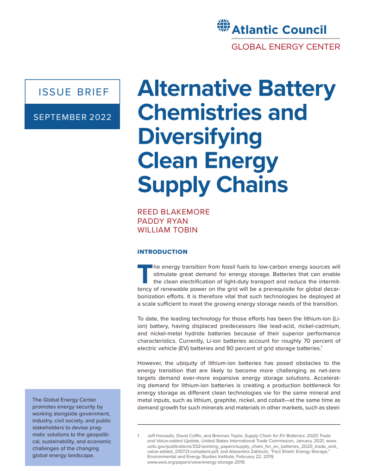Alternative battery chemistries and diversifying clean energy supply chains
Atlantic Council
The energy transition from fossil fuels to low-carbon energy sources will stimulate great demand for energy storage, and batteries will play an essential role in enabling the electrification of the transportation sector and reducing the intermittency of renewable electricity generation in the power sector. Presently, lithium-ion batteries predominate in both electric vehicle and grid storage applications. However, the continued expansion of these sectors will drive demand for minerals in the lithium-ion battery supply chain by a staggering degree.
Demand for lithium alone is projected to grow by 42 times from 2020 to 2040 and could reach a structural undersupply with a deficit of 1.75 million metric tons by 2030. Geopolitical risks also abound in the battery value chain. Russia controls 21 percent of global class 1 nickel production, and China controls 80 percent of global cobalt processing capacity.
Related Posts

document
Toward a Democratic Technology Alliance: An innovation edge that favors freedom
This is the fourth report in a five-part series of Atlantic Council publications, as part of a project on revitalizing the rules-based international system and positioning the United States and its allies to succeed in an era of strategic competition.

document
Free but secure trade: priorities in support of national security
In an era of increasing global fragmentation and acute security competition, it will be, as Treasury Secretary Janet Yellen has stated, “increasingly difficult to separate economic issues from broader considerations of national interest, including national security.”
